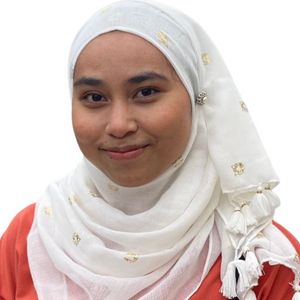Dengue seems to be winning in post-Covid era, experts say

SHAH ALAM - Dengue cases in the country has been showing a concerning upward trend with cumulative cases reported has increased by 205.6 per cent (8,810 cases) to 13,094 cases.
Health expert Prof Dr Hematram Yadav said the reason behind this spike is because people are still busy combating Covid-19, overlooking the growing number of dengue cases. "Dengue cases seem to increase every 4 years and last year there were about 40000 cases, I think the cases will exceed the projected number this year," he added.
Public health expert Azrul Mohd Khalib said according to the World Health Organisation (WHO), the incidence of dengue has grown dramatically around the world in recent decades and Malaysia is not exempted from this.
"Malaysia is actually in the hotzone for dengue in the region.
"Despite the decrease in number of cases in 2020 and 2021 amidst the Covid-19 pandemic, the Health Ministry has warned an increase in dengue cases which will likely bring Malaysia back to pre-pandemic levels," he said.
Both experts have described the signs and symptoms of dengue fever.
Patients will have a high temperature fever alongside severe headache pain behind the eyes, muscle and joint pain, swollen glands, or a a blotchy rash made up of flat or slightly raised spots.
To combat the infection of dengue, Prof Dr Hematram said the health authorities must emphasise the importance of prevention of dengue which include clearing receptacles.
He added that fogging should continue in hot spots in Selangor especially Petaling, Klang, and Hulu Langat.
He also said that the public should take responsibility to take preventive measures in their areas and go to the nearest clinic in case of suspicion of dengue fever.
Azrul Mohd Khalib said rapid and accurate diagnosis of dengue is important.
"This will not only help in better clinical management of the patient, but also allows vector control efforts to be initiated quickly to contain any local outbreaks," he told Sinar Daily.
He stressed that the government must take ownership of dengue beyond health and into other sectors such as urban planning, education and local councils.
Cooperation from the affected communities is key to success of any dengue prevention or management programme, he pointed out.
"Malaysia's leadership and efforts are crucial in combating dengue, particularly in community mobilisation and participation in early vaccine clinical trials and innovative field research such as the use of Wolbachia-infected Aedes aegypti and dengue vaccine," he said.
"It is not enough to just do fogging. We need such innovative solutions to effectively address the epidemic," he added.
Health director-general Tan Sri Dr Noor Hisham Abdullah in a statement on Friday said the cumulative number of dengue cases reported this year is higher compared with 4,284 cases recorded for the same period last year.
He said that nine deaths due to fever complications were also recorded, compared with no deaths reported for the same period in 2022.
Meanwhile, Selangor is also expected to face a 150 per cent spike in dengue fever cases this year or next year if the breeding sites of Aedes mosquitoes are not dealt with seriously by the community.
State Public Health, Unity, Women and Family Development Committee chairman, Dr Siti Mariah Mahmud said as of Feb 11, which is the sixth epidemiological week (ME), a total of 6,870 cases were recorded, an increase of 141.4 per cent compared with the same period, last year.
"With the number of dengue cases close to 40,000 last year, just imagine (spike in cases in 2024) if it is not contained," she told a press conference here on Thursday.
She said that based on the dengue fever cycle that occurs in Malaysia over a period of 20 years, every four to five years this country is expected to experience a steep rise in dengue cases.
During the period, Petaling district recorded the highest number of localities at 203, followed by Hulu Langat (120), Klang (82) and Gombak (69).











